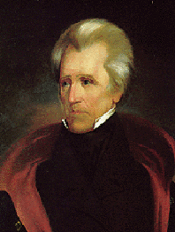June 6 is National Gardening Exercise Day
National Yo-Yo Day
June 6, 1586 – Francis Drake’s forces raid St. Augustine in Spanish Florida as part of Drake’s “Great Expedition”. Drake was the second to circumnavigate the globe. He was a hero to the English but a pirate to the Spaniards.
Birthday of Nathan Hale (June 6, 1755), American soldier of the American Revolution whose last words were: “I regret that I have but one life to give for my country.” He had been attempting to gather intelligence when he was captured by the British and executed.
 On June 6, 1833, In Ellicott’s Mills, Maryland, President Andrew Jackson boarded a Baltimore & Ohio Railroad train for a pleasure trip to Baltimore. Jackson, who had never been on a train before, was the first president to take a ride on the “Iron Horse,” as locomotives were known then.
On June 6, 1833, In Ellicott’s Mills, Maryland, President Andrew Jackson boarded a Baltimore & Ohio Railroad train for a pleasure trip to Baltimore. Jackson, who had never been on a train before, was the first president to take a ride on the “Iron Horse,” as locomotives were known then.
1844 – The Young Men’s Christian Association (YMCA) was founded in London in 1834.
The electric iron was invented in 1882 by Henry W. Seeley, a New York inventor. Seeley patented his “electric flatiron” on June 6, 1882. His iron weighed almost 15 pounds and took a long time to warm up. Other electric irons had also been invented, including one from France (1882), but it used a carbon arc to heat the iron.
June 6, 1932 – The Revenue Act of 1932 was enacted, creating the first gas tax in the United States, at a rate of 1 cent per US gallon.
In 1934 – New Deal: the U.S. President Franklin D. Roosevelt signed the Securities Act of 1933 into law, establishing the U.S. Securities and Exchange Commission.
June 6, 1944 – World War II: the Battle of Normandy began. D-Day, code named Operation Overlord, commenced with the landing of 155,000 Allied troops on the beaches of Normandy in France. The allied soldiers quickly broke through the Atlantic Wall and pushed inland in the largest amphibious military operation in history.
June 6, 1968 – Robert F. Kennedy, Democratic Party senator from New York and brother of 35th President John F. Kennedy, died from gunshot wounds inflicted on June 5.
June 6, 1988 – Japanese-American internees (promise broken, May 1989)
President Ronald Reagan signed into law the Civil Liberties Act, which apologized for the internment on behalf of the U.S. government and authorized a payment of $20,000 to each individual camp survivor. The legislation admitted that government actions were based on “race prejudice, war hysteria, and a failure of political leadership”. The U.S. government eventually disbursed more than $1.6 billion in reparations to 82,219 Japanese Americans who had been interned and their heirs
